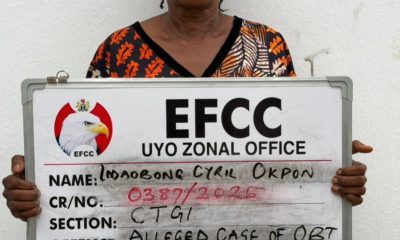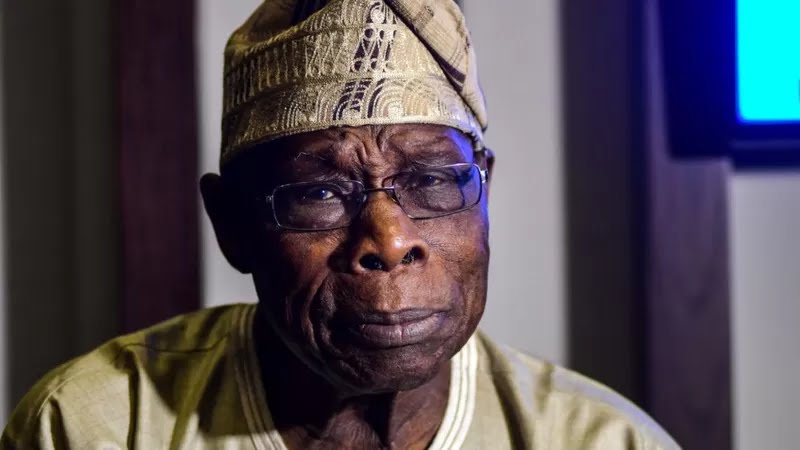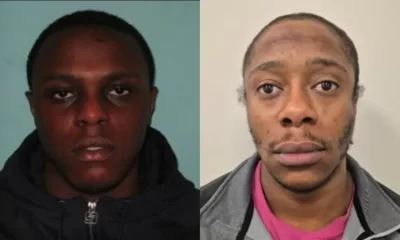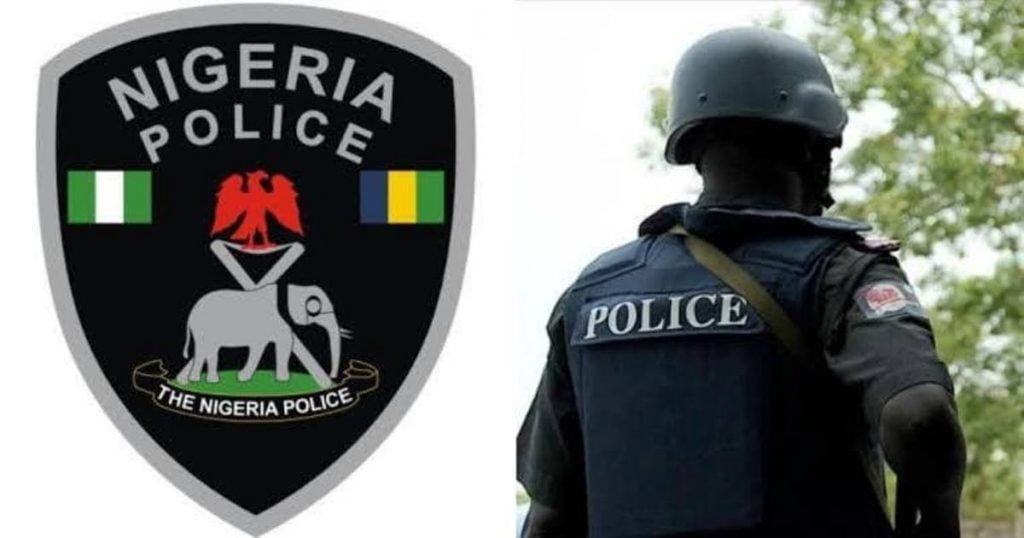Health
Nigeria leads Africa, Attracts $195m Healthcare Investment In Five Years
Nigeria’s healthcare sector in the last five years attracted the highest healthcare Private Equity and Venture Capital investment deals in Africa.
This is according to data obtained from Africa Private Equity and Venture Capital Association (AVCA) April report on PE and VC deals.
Out of the 97 volumes of PE and VC deals reported worth $1.3 billion from 2015 to 2020, Nigeria accounted for 15 percent ahead of Morroco, Egypt, South Africa and Ghana.
The 15 percent share of deals amounts to about $195 million based on Ripples Nigeria estimate.
Morroco came in second as its healthcare accounted for 11 percent share of the PE&VC deals to Africa.
This was followed by Egypt with a deal volume of 10 percent as South Africa and Ghana made the top five list with 8 percent volume of deals each.
Nigeria’s growing population and seemingly low commitment by the Federal government on healthcare delivery has made the country a very attractive market for healthcare Investors.
“The demand for healthcare services in Nigeria is high and will increase with the growth of the population. Unfortunately this rising demand cannot be covered by Nigeria’s weak healthcare system today,” Anthony Abou Nader in June 2019 told a group of healthcare Investors inviting them to invest in Nigeria.
He also projected bigger investment in the next four years for Nigeria’s healthcare sector.
Also, the United Nations Economic Commission for Africa (ECA) estimated health financing gap of US$66 billion per annum in Africa.
The report noted that Nigeria along with many other African countries are yet to fulfil the agreement to allocate 20 percent of its national budget to healthcare, hence present a huge opportunity for private investors to rewrite the narrative.
Health
Lassa fever affects 21 states cases increase in Nigeria

The Nigeria Centre for Disease Control and Prevention, NCDC, says Lassa fever has claimed 168 lives across 21 states in 2025.
The agency in its situation report for epidemiological week 38, disclosed a total of 4,543 suspected cases, of which 897 were confirmed positive, with a case fatality rate of 18.7 per cent.
It stated that four states, Ondo, Edo, Taraba, and Bauchi, remain the epicentres of the outbreak, accounting for 67 per cent of all confirmed cases. Ondo alone has recorded the highest burden, followed by Edo and Bauchi.
According to the agency, other affected states include Ebonyi, Benue, Kogi, Gombe, Plateau, Kaduna, Nasarawa, Enugu, Delta, Anambra, Rivers, Borno, Oyo, Ogun, the Federal Capital Territory, and Lagos.
The report also highlighted that most of the confirmed cases were among people aged 21 to 40, with both men and women affected.
The NCDC said this age group is the most socially and economically active, making them more exposed to the rodent-borne disease.
Lassa fever is an acute viral haemorrhagic illness transmitted to humans through contact with food or household items contaminated by the urine or faeces of infected rats.
Health
NAFDAC orders removal of 101 products, warns against sale, use

The National Agency for Food and Drug Administration and Control (NAFDAC) has ordered the withdrawal, suspension and cancellation of 101 products from circulation in Nigeria.
The agency gave the order in a post on its official X handle yesterday, stating that the affected products must no longer be manufactured, imported, exported, distributed, advertised, sold or used in the country.
“This is to inform the general public that the following products are approved for withdrawal, suspension and cancellation by NAFDAC. They are therefore no longer permitted for manufacture, importation, exportation, distribution, advertisement, sale and use within Nigeria,” the statement read.
Related News
NAFDAC orders market removal of 101 products
NAFDAC raises alarm over adulterated palm oil sold by traders
Technological disruption, regulatory changes hindering sustainable healthcare – NAFDAC DG
According to NAFDAC, a product is considered withdrawn when its registration is discontinued at the request of the market authorisation holder, suspended when licensing conditions are no longer met, and cancelled when the agency revokes the registration licence completely.
The list encompasses a wide range of medicines and health products, including antibiotics, diabetes medications, cardiovascular drugs, and insulin injectables.
The agency urged healthcare providers, importers, distributors, retailers and the general public to consult the full list of affected products on its website and ensure strict compliance with the directive
Health
Ebola Virus: NCDC Declares Index Suspects Negative
The Nigeria Centre for Disease Control and Prevention (NCDC) has declared that there was no case of Ebola in the Federal Capital Territory (FCT), after the index patient suspected of having the virus that causes haemorrhagic fever tested negative for Ebola and Marburg disease.
In a statement on his X handle on Friday, the Centre, however, noted that further tests for other VHFs like Lassa and Dengue are ongoing.
“Thanks to early reporting by a traveller and the swift action of vigilant health workers, the risk to the public was minimised.”
It advised the public to seek medical help immediately if they felt unwell, especially after travelling.
The NCDC also advised the public to shun rumours.
“If you feel unwell, especially after travel, seek medical care immediately. Wash hands regularly & practise good hygiene. Avoid contact with anyone showing unexplained fever, bleeding, vomiting, or diarrhoea.
“Rely only on official NCDC updates. Say no to rumours,” the Centre wrote.
The Centre’s update came after the suspect passengers aboard the Rwanda Air to Abuja were thought to have exhibited Ebola-related symptoms.
Similarly, a statement signed by the Director General of NCDC, Dr. Jide Idris, said: “We wish to inform the public that two recent suspected cases of viral hemorrhagic fever in Abuja both tested negative for Ebola and Marburg viruses.
“We are currently testing samples for other viral hemorrhagic fevers like Lassa Fever and Dengue Fever.
“The most recent case involved a traveller who, after returning to Nigeria from Kigali, responsibly presented himself immediately to a hospital in Abuja when he felt unwell.
“His decision to report early, combined with the vigilance of the attending clinician and hospital team, ensured that our public health system was promptly activated and that the risk to the public was minimised.
“This responsible action is highly commendable and a good practice all Nigerians are urged to emulate; when you feel unwell, especially after travel, seek care early. Doing so protects you, your family, and your community.”
-

 News5 days ago
News5 days agoEFCC Arrests School Owner for Alleged Visa and Scholarship Fraud in Uyo
-

 News5 days ago
News5 days agoTell Nigerians real reasons for sacking service chiefs – ADC to Tinubu
-

 News4 days ago
News4 days agoPolice arrest four over alleged murder of man lured by girlfriend in Sokoto
-

 Politics5 days ago
Politics5 days agoI rejected El-Rufai as my successor over immaturity – Obasanjo
-

 Business3 days ago
Business3 days agoDangote Refinery to expand capacity to 1.4m barrels daily
-

 News4 days ago
News4 days agoNigerian man and accomplice sentenced to life imprisonment for murder in UK
-

 News4 days ago
News4 days agoFestac DPO, Matilda Ngbaronye, Dies in Lagos Hospital
-

 Politics4 days ago
Politics4 days agoNov. LG elections: Niger Gov Bago flags off APC campaign
-

 News3 days ago
News3 days agoLagos police arrest Chinese national over Ikeja CCTV shop explosion
-

 News5 days ago
News5 days agoCommissioner, police orderly die in Gombe auto crash
-

 International2 days ago
International2 days ago92-year-old Paul Biya wins Cameroon presidential election







